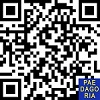EVALUATION OF VALIDITY AND FEASIBILTY OF THE CASHFLOWPOLY BOARDGAME AS A FINANCIAL LEARNING MEDIA FOR MIDDLE SCHOOL STUDENTS
Abstract
Abstrak: Penelitian ini bertujuan untuk mengetahui validitas konten dan feasibilitas dari penggunaan permainan papan Cashflowpoly sebagai media pembelajaran keuangan dalam konteks pendidikan formal di jenjang sekolah menengah pertama. Penelitian ini berjenis R&D yaitu pada tahap evaluasi formatif. Berdasarkan metode expert based evaluation, disimpulkan bahwa permainan papan tersebut valid dengan katagori excellent yang ditunjukkan dengan nilai Content Validity Index (CVI) yaitu S-CVI sebesar 0,92 dan semua I-CVI bernilai di atas 0,83. Panel ahli berjumlah enam orang yang berasal dari latar belakang profesi guru, akademisi, praktisi keuangan, praktisi pendidikan dan psikolog. Selain itu, berdasarkan penilaian menggunakan kuesioner dengan Likert skala 5 yang dilakukan setelah field trial dengan partisipan (N=135) disimpulkan bahwa penggunaan papan permainan Cashflowpoly layak digunakan dalam sekolah menengah pertama. Penelitian ini juga mengidentifikasi tantangan penggunaan Cashflowpoly pada aktivitas intrakulikuler dan alternatif solusi berdasarkan saran ahli dan partisipan di lapangan. Hasil dari penelitian ini memberikan kebaruan yang menawarkan alternatif media pembelajaran keuangan yang valid dan layak untuk diterapkan kepada remaja/ siswa di sekolah menengah pertama. Oleh karena itu, peneliti merekomendasikan kepada pembuat kebijakan, sekolah, dan guru untuk menggunakan media pembelajaran ini sebagai salah satu alat pembelajaran literasi keuangan, termasuk mengintegrasikannya dalam kegiatan intrakurikuler.
Abstract: This research aims to determine the content validity and feasibility of using the Cashflowpoly board game as a financial learning medium in the context of formal education at the junior high school level. This research is of the R&D type, specifically at the formative evaluation stage. Based on the expert-based evaluation method, it was concluded that the board game is valid with an excellent category, as indicated by the Content Validity Index (CVI) value, namely an S-CVI of 0.92 and all I-CVIs above 0.83. The expert panel consisted of six individuals from backgrounds in teaching, academia, finance, education, and psychology. In addition, based on the assessment using a 5-point Likert scale questionnaire conducted after the field trial with participants (N=135), it was concluded that the use of the Cashflowpoly board game is suitable for use in junior high schools. This study also identifies the challenges of using Cashflowpoly in extracurricular activities and alternative solutions based on expert advice and field participants. The results of this study provide a novelty that offers a valid and feasible alternative financial learning media to be applied to adolescents/students in junior high schools. Therefore, the researchers recommend to policymakers, schools, and teachers to use this learning media as one of the tools for financial literacy education, including integrating it into extracurricular activities.Keywords
Full Text:
PDFReferences
Aisyah, M. N., Ilyana, S., & Hermawan, H. D. (2022). Developing a Financial Literacy Storybook for Early Childhood in an Augmented Reality Context. Contemporary Educational Technology, 14(2). https://doi.org/10.30935/cedtech/11734
Amagir, A., Groot, W., Maassen van den Brink, H., & Wilschut, A. (2018). A review of financial-literacy education programs for children and adolescents. In Citizenship, Social and Economics Education (Vol. 17, Issue 1, pp. 56–80). SAGE Publications Inc. https://doi.org/10.1177/2047173417719555
Azib, A., Ansari Harahap, D., & Amanah, D. (2022). Do Financial Literacy And Financial Attitudes Play A Role In Influencing Financial Management Behavior? International Journal of Early Childhood Special Education (INT-JECS, 14, 2022. https://doi.org/10.9756/INT-JECSE/V1413.194
Badan Standar, K. dan A. P. (2024). Pendidikan Literasi Finansial, Panduan Implementasi untuk Satuan Pendidikan dan Pemangku Kepentingan. https://kurikulum.kemdikbud.go.id/file/1729244746_manage_file.pdf
Batty, M., Collins, J. M., & Odders-White, E. (2015). Experimental evidence on the effects of financial education on elementary school students’ knowledge, behavior, and attitudes. Journal of Consumer Affairs, 49(1), 69–96. https://doi.org/10.1111/joca.12058
Becchetti, L., Caiazza, S., & Coviello, D. (2013). Financial education and investment attitudes in high schools: Evidence from a randomized experiment. Applied Financial Economics, 23(10), 817–836. https://doi.org/10.1080/09603107.2013.767977
Bharathi, V. S., & Kulkarni, M. S. (2020). Competition in Monopoly: Teaching-Learning Process of Financial Statement Analysis to Information Technology Management Students. International Journal of Information and Communication Technology Education, 16(3), 70–91. https://doi.org/10.4018/IJICTE.2020070106
Bhattacharya, R., & Gill, A. (2020). Financial Education and Financial Attitudes: Evidence From a High School Experiment. Journal of Financial Counseling and Planning, 31(2), 251–266. https://doi.org/10.1891/JFCP-19-00034
Candra Sari, R., Rika Fatimah, P. L., Ilyana, S., & Dwi Hermawan, H. (2022). Augmented reality (AR)-based sharia financial literacy system (AR-SFLS): a new approach to virtual sharia financial socialization for young learners. International Journal of Islamic and Middle Eastern Finance and Management, 15(1), 48–65. https://doi.org/10.1108/IMEFM-11-2019-0484
Coda Moscarola, F., & Kalwij, A. (2021). The Effectiveness of a Formal Financial Education Program at Primary Schools and the Role of Informal Financial Education. Evaluation Review, 45(3–4), 107–133. https://doi.org/10.1177/0193841X211042515
Dervishaj, B. (2021). Psychological Biases, Main Factors of Financial Behaviour, A Literature Review. European Journal of Medicine and Natural Sciences, 4(1), 23–44. https://doi.org/10.26417/ghmax638
Fazli Sabri, M., Poh Lee, M., Wahab, R., & Nira Ramli, N. (2018). Does The Bijak Wang (Smart Money) Programme Benefit School Going Children? Malaysian Journal of Consumer and Family Economics, 20(2), 123–143. https://www.researchgate.net/publication/330008565
Fernandes, D., Lynch, J. G., & Netemeyer, R. G. (2014). Financial literacy, financial education, and downstream financial behaviors. Management Science, 60(8), 1861–1883. https://doi.org/10.1287/mnsc.2013.1849
Fessler, P., Silgoner, M., & Weber, R. (2020). Financial knowledge, attitude and behavior: evidence from the Austrian Survey of Financial Literacy. Empirica, 47(4), 929–947. https://doi.org/10.1007/s10663-019-09465-2
Friedman, W. J. (2000). The Development of Children’s Knowledge of the Times of Future Events. Society for Research in Child Development, 71(4), 913–932. https://www.jstor.org/stable/1132334?seq=1&cid=pdf-
Gall, M. D., Gall, J. P., & Borg, W. R. (2007). Educational research: An introduction (8th ed.) (A. E. Burvikovs, Ed.; 8th ed.). New York: Pearson Education.
Gilbert, G. E., & Prion, S. (2016). Making Sense of Methods and Measurement: Lawshe’s Content Validity Index. Clinical Simulation in Nursing, 12(12), 530–531. https://doi.org/10.1016/j.ecns.2016.08.002
Goyal, K., & Kumar, S. (2021). Financial literacy: A systematic review and bibliometric analysis. International Journal of Consumer Studies, 45(1), 80–105. https://doi.org/10.1111/IJCS.12605
Johan, I., Rowlingson, K., & Appleyard, L. (2021). The Effect of Personal Finance Education on The Financial Knowledge, Attitudes and Behaviour of University Students in Indonesia. Journal of Family and Economic Issues, 42(2), 351–367. https://doi.org/10.1007/s10834-020-09721-9
Josef, N., & Vera, J. (2017). Financial Literacy And Behavioural Skills: The Influence Of Financial Literacy Level On Behavioural Skills. KnE Social Sciences, 1(2), 366. https://doi.org/10.18502/KSS.V1I2.670
Kaiser, T., Lusardi, A., Menkhoff, L., & Urban, C. (2022). Financial education affects financial knowledge and downstream behaviors. Journal of Financial Economics, 145(2), 255–272. https://doi.org/10.1016/J.JFINECO.2021.09.022
Kaiser, T., & Menkhoff, L. (2017). Does financial education impact financial literacy and financial behavior, and if so, when? World Bank Economic Review, 31(3), 611–630. https://doi.org/10.1093/wber/lhx018
Kaiser, T., & Menkhoff, L. (2020). Financial education in schools: A meta-analysis of experimental studies. Economics of Education Review, 78. https://doi.org/10.1016/j.econedurev.2019.101930
Kaligis, F., Ismail, R. I., Wiguna, T., Prasetyo, S., Indriatmi, W., Gunardi, H., Pandia, V., & Magdalena, C. C. (2021). Mental Health Problems and Needs among Transitional-Age Youth in Indonesia. International Journal Of Environmental Research And Public Health, 18(8). https://doi.org/10.3390/ijerph18084046
Lemrova, S., Kvintova, J., & Plevova, I. (2019). Attitudes Towards Money, Financial Literacy And Economic Socialization. In L. Chova, A. Martinez, & I. Torres (Eds.), 12th International Conference Of Education, Research And Innovation (ICERI 2019) (pp. 7700–7707). https://www.webofscience.com/wos/woscc/full-record/WOS:000530212403094
Lew, C., & Saville, A. (2021). Game-based learning: Teaching principles of economics and investment finance through Monopoly. International Journal Of Management Education, 19(3). https://doi.org/10.1016/j.ijme.2021.100567
Lynn, M. R. (1986). Determination and Quantification of Content Validity. Nursing Research, 35, 382–386.
Mireku, K., Appiah, F., & Agana, J. A. (2023). Is there a link between financial literacy and financial behaviour? Cogent Economics and Finance, 11(1). https://doi.org/10.1080/23322039.2023.2188712
Mousa, R. (2019). Addressing the AICPA core competencies through the usage of the monopolyTM board game. Accounting Research Journal, 32(2), 166–180. https://doi.org/10.1108/ARJ-01-2017-0030
OECD. (2017). PISA 2015 Results (Volume IV) Students’ Financial Literacy. http://dx.doi.org/10.1787/9789264270282-en
Otoritas Jasa Keuangan. (2023). Statistik P2P Lending Periode Juli 2023. https://ojk.go.id/id/kanal/iknb/data-dan-statistik/fintech/Pages/Statistik-P2P-Lending-Periode-Juli-2023.aspx
Polit, D. F., & Beck, C. T. (2006). The content validity index: Are you sure you know what’s being reported? Critique and recommendations. Research in Nursing and Health, 29(5), 489–497. https://doi.org/10.1002/nur.20147
Reisdorfer-da-Silva, R. C., Becker, K. L., & Vieira, K. M. (2025). The impact of board games on the financial literacy of public-school students. Journal of Behavioral and Experimental Economics, 114. https://doi.org/10.1016/j.socec.2024.102331
Rodriguez-Raga, S., & Martinez-Camelo, N. (2022). Game, guide or website for financial education improvement: Evidence from an experiment in Colombian schools. Journal of Behavioral and Experimental Finance, 33. https://doi.org/10.1016/j.jbef.2021.100606
Safura, A., Fajarianingtyas, D. A., & Azizah, L. F. (2022). Validitas Lembar Kerja Siswa Elektronik (E-LKS) Melalui Pendekatan Saintifik Dengan Menggunakan Liveworksheet. Prosiding Seminar Nasional Pendidikan IPA Tahun 2022 “Digitalisasi dan Edu-Ecoprenuer Berbasis Socio Scientific Issues,” 1–11.
Santrock, J. W. (2014). Child Development An Introduction (15th ed.). New York: McGraw-Hill Education.
Sari, D. E., Narimo, S., & Saputra, R. C. (2020). The effect of financial literacy and pocket money on consumer behavior of universitas muhammadiyah surakarta (Ums) students. International Journal of Scientific and Technology Research, 9(2), 4235–4237.
Sari, R. C., & Fatimah, P. L. R. (2017). Bringing Voluntary Financial Education in Emerging Economy: Role of Financial Socialization During Elementary Years. Asia-Pacific Education Researcher, 26(3–4), 183–192. https://doi.org/10.1007/s40299-017-0339-0
Sari, R. C., Sholihin, M., Cahaya, F. R., Yuniarti, N., Ilyana, S., & Fitriana, E. (2024). Responding to Islamic finance anomalies in Indonesia: Sharia financial literacy using virtual reality context. Journal of Islamic Accounting and Business Research, ahead-of-print(ahead-of-print). https://doi.org/10.1108/JIABR-08-2022-0195
Scheinholtz, L., Holden, K., & Kalish, C. (2011). Cognitive Development and Children’s Understanding of Personal Finance. In D. J. Lamdin (Ed.), Consumer Knowledge and Financial Decisions: Lifespan Perspectives (pp. 29–47). Springer New York. https://doi.org/10.1007/978-1-4614-0475-0_3
Selamat, A. I., & Ngalim, S. M. (2022). Putra Salamanis board game: the game of bookkeeping for fundamental financial accounting learning. Accounting Education, 31(5), 596–614. https://doi.org/10.1080/09639284.2021.2015408
Supanantaroek, S., Lensink, R., & Hansen, N. (2017). The Impact of Social and Financial Education on Savings Attitudes and Behavior Among Primary School Children in Uganda. Evaluation Review, 41(6), 511–541. https://doi.org/10.1177/0193841X16665719
Utkarsh, Pandey, A., Ashta, A., Spiegelman, E., & Sutan, A. (2020). Catch them young: Impact of financial socialization, financial literacy and attitude towards money on financial well-being of young adults. International Journal of Consumer Studies, 44(6), 531–541. https://doi.org/10.1111/ijcs.12583
Walstad, W., Urban, C., J. Asarta, C., Breitbach, E., Bosshardt, W., Heath, J., O’Neill, B., Wagner, J., & Xiao, J. J. (2017). Perspectives on evaluation in financial education: Landscape, issues, and studies. Journal of Economic Education, 48(2), 93–112. https://doi.org/10.1080/00220485.2017.1285738
Xiao, J. J., & Dew, J. (2011). The Financial Management Behavior Scale: Development and Validation. Journal of Financial Counseling and Planning, 22(1), 43–59. http://afcpe.org/journal-articles.php?volume=387&article=403
DOI: https://doi.org/10.31764/paedagoria.v16i2.29751
Refbacks
- There are currently no refbacks.
Copyright (c) 2025 Emanuella Christianti, Dewi Retno Suminar

This work is licensed under a Creative Commons Attribution-ShareAlike 4.0 International License.
Paedagoria : Jurnal Kajian, Penelitian dan Pengembangan Kependidikan
Fakultas Keguruan & Ilmu Pendidikan | Universitas Muhammadiyah Mataram.
_______________________________________________
 | Paedagoria : Jurnal Kajian, Penelitian dan Pengembangan Kependidikan |
______________________________________________
CURRENT INDEXING:
EDITORIAL OFFICE:

















